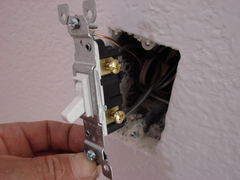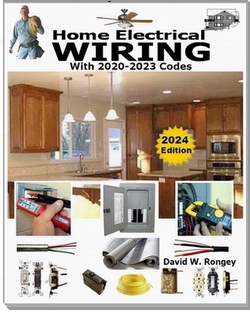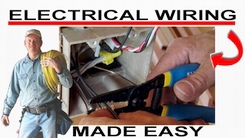» Need Electrical Help? Ask the Electrician
Wiring Lights From a Switch

|
By Dave Rongey
© By: Dave Rongey |
How to Wire Lights From a Switch
Wiring Lights From a Switch.
I am stumped over a rather simple lighting circuit. I have 5 lights in line in a pole barn which are all on one circuit. The source is a 20 A breaker from the 200 A service panel. The source enters the center light.
There are 2 lights left and 2 lights right of the center lamp. I wish to switch all 5 lamps at one end of the circuit with a 20 A switch. I believe I will have a black and white wire at the switch. How do I wire the 5 lamps?
Thanks Paul
Hi Paul - Great Electrical Repair Question!
Lighting is pretty straight forward when using a single switch, however let me go over the basics:
The Hot is attached through the switch, Neutrals splice right through, all together. It really does not matter where your switched hot enters the lights, just keep all the colors together, Black wires to Black wires, White wires to White wires, that is Hot's and Neutrals respectively.
Grounds go all together as well, bonded to any metal boxes that are being used. I don't know what type of fixtures your installing, or the capability to junction wires if needed.
Here is a page on the website with some light switch wiring diagrams.
The only difference between the two wiring diagrams is where the power originates at.
Please remember that electricity outside is best protected by a GFCI device:
Here is more info about How to Wire GFCI's
Be Careful and Be Safe - Never Work on Energized Circuits!













